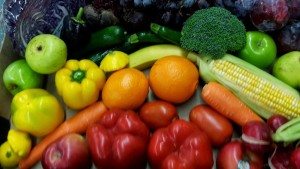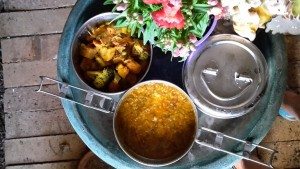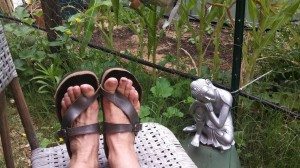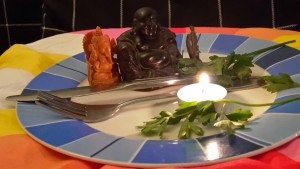Eat up
“food glorious food ! “ Oliver sang.
( Lyrics by Lionel Bart)
Unfortunately this sentiment is not shared by everyone. Writing about nutrition and wellness is as provocative as talking about politics and religion. Eat up is a reflection on eating with the who? why? what? when ? and how we eat being explored in this blog.
Who ?
Hand on the fridge door the glow of a cave of sustenance or malnutrition? An evaluation only you can make as you are responsible for creating your temple – your body. At times my temple is like the Leaning tower of Pisa, out of balance and though I could blame the builders I am the maintenance worker. The body I live in is unique to me thus my diet is my masterpiece with a rainbow palette of colours made of vegetables, fruit, nuts, proteins and fats.

Thanks to Mr Fresh Carine Shop
My eating changes according to my metabolism, exercise demands and access to what I need. My diet may not work for others and that’s okay as we each find our way. Be aware food fads can alienate people from the ones they love. Who is your diet expert? It’s you – for with reflection you have the body awareness and compassion to know it the best. Shakespeare reinforced this when he stated:
“Our bodies are our gardens
our wills are our gardeners”
Othello Scene 1 part 3 page 13
Why ?
Why we eat extends to meeting physical, social, spiritual, cultural and psychological needs.
Early in life we connect food with being cared for and there is a complex relationship with meeting our hunger for love, security, self worth and eating. Food can be sought to fill up the empty feeling from: loneliness, boredom and lack of motivation though the soul seeks sustenance.

Baci a chocolate kiss
Food can be used as a source of emotional insulation to protect from hurt or to pad out the emotional pain. Unconsciously food can be used to punish ourselves in a self destructive way by overeating or starving. Wellbeing can be jeopardized in an attempt to exert control or to achieve a body ideal that eats away at a persons existence. People can worry and obsess about the balance of their food, not leaving energy for other dimensions of their wellbeing.
Why eat ? Is a question we can ask to identify which needs are being meet, before we bite in.
When?
Externally eating can be bound to shift work demands, strict meal breaks and family routines that may not be within our control. Religious celebrations such as Yom Kippur, Lent and Ramadan for followers effect when and what is eaten. In an ideal world it would be possible to eat when we are hungry and in our own time frame.
Seasonal produce now has an extended lifespan that allows people to eat fruit and vegetables beyond when they were harvested. Access to fresh fruit and vegetables for remote communities is limited and expensive. In the city it is possible to order online and go to the market days. Fortunately their are movements such as Second harvest and Foodbank that share produce to those with limited resources.
When to eat bound by many factors ultimately your choice.

What?
What we eat can reveal a pattern as to our mental health for example stress eating pattern.
In the healing art of Jin Shin Jyutsu attitudes are reflected in the tastes we seek:
Sweet when Worried, Tart when Sad, Sour when Angry,
Salty when Scared, Bitter when in pretense
A guide to what to eat, comes from Hippocrates who stated :
“Let food be thy medicine and medicine be thy food”.
Braun & Cohen (2011)p 47
Eating traditions in Chinese medicine and Ayuvedic practices offer examples of what you can eat according to the healing you are seeking. For example I find chicken soup soothes my cold symptoms.
What to eat can be inspired by our attitude or health needs or simple what remains in the pantry .

How?
“Eating fast is a diservice to the cook who prepared the food, to your companions at the table and primarily to your own body” J. Travis and R, Ryan (2004) p.114
Frantic eating leads to indigestion, heartburn and unfulfilled hunger leading us to eat more. Slow eating where the aroma is smelt, tastebuds tantalised with flavour, eyes feast on colour, touching the textures and hearing the sound of chewing brings enjoyment to eating. In eating slowly we eat less as our hunger is answered.
A ritual that enables us to slow down is mindfully offering a prayer – Grace. This provides a moment for us to rest, orient ourselves to eating and express gratitude for those that have worked to create our meal.
In Australia our eating is not threatened by civil war, famine or natural disaster – we are a lucky country. Our luck has lead us to eating habits that contribute to a rise in lifestyle diseases. Eat up is the challenge we meet when we ask ourselves about our eating patterns and how they path our future wellbeing.

Reference
Bart L (1960) Food Glorious Food sung in the play/ movie Oliver
Braun, L & Cohen, M (2011) Herbs and Natural Supplements 3rd Ed. Churchill Livingstone, Sydney
Travis, J and Ryan, R (2004) Wellness Workbook, Celestial Arts, Berkely


Leave a Reply